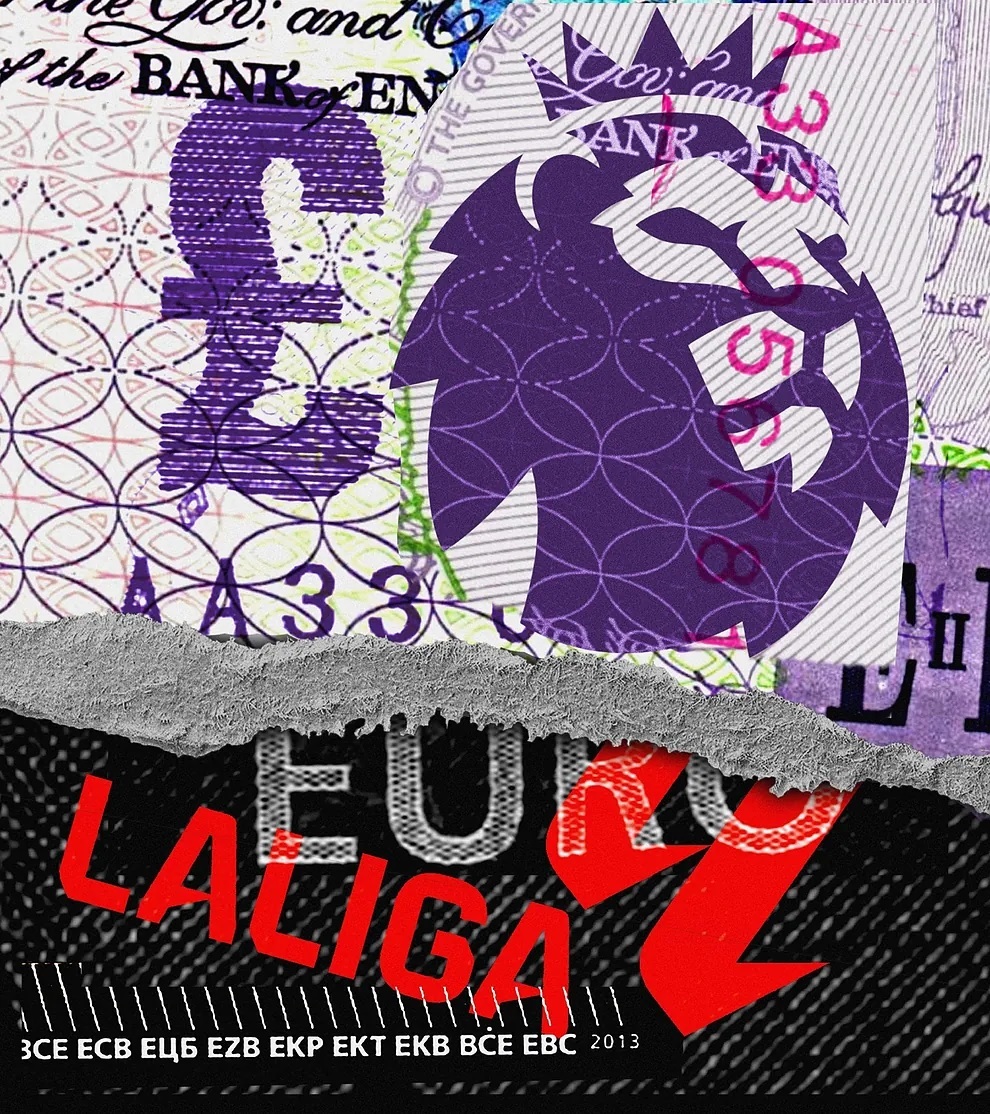The story may sound familiar because the drip is constant year after year. Million by million, signing by signing. Spain sells and England buys while the League tries to survive and the Premier League expands. On the field, there is competition, but in the boardrooms, the numbers are overwhelming: the British clubs have a net spending of 8.1 billion in the last five years (1.519 just this summer) and Spanish football is in the positive with a profit of 134 million thanks to the strict guidelines of the Financial Fair Play (45 net spending in this market). Green numbers in a galactic yet desolate landscape, where mid and lower-tier clubs let go of their best players every year, and where Madrid and Barcelona, with Kylian Mbappé and Lamine Yamal in the global spotlight, maintain the football pulse with "the English Super League," as it is already called in the sports management of the League.
"We have Mbappé, we have Lamine... Our national team won the Euro Cup with the majority of players from our League and the same with the gold in the Olympics. Not everything is done with signings," claims Javier Tebas, president of LaLiga, in recent months. And that is the sporting reality and the Spanish miracle. While drowning, they succeed.
Liverpool pays 150 million euros for Isak
Between 2009 and 2018, the golden era, the teams from our country won 13 out of the 20 possible titles between Champions League (7) and Europa League, compared to the three of the English clubs, and with the Ballon d'Or always shared between Cristiano and Messi. The departure of the Portuguese to Juventus and the Argentine to PSG were a turning point, an example of the moment of weakness against the push of the Premier League. But Spain still holds the competitive data: since 2019, the clubs in the League have won five out of the 18 possible titles between Champions League (two for Madrid), Europa League, and the new Conference League, compared to seven for the Premier League (three Champions Leagues), which won thanks to Rodri, their first Ballon d'Or winner since Cristiano with United in 2008.
Negative balance of 1.519 billion
But today, football is much more than the ball, and the industry also explains with data that the Premier League has not only surpassed La Liga but the rest of the continental football. And this summer has been no exception. Liverpool has been involved in the three most expensive transfers of this market: Isak (150 million), Wirtz (125), and Ekitiké (95), and the British teams have been responsible for 16 of the top 20 transfers, 20 of the top 25, and 38 of the top 50.
Their net spending (sales minus signings) in the summer doubles that of the rest of the leagues in the world. A negative balance of 1.519 billion which is higher than that of Saudi Arabia (-341), Turkey (-152), Italy (-88), or Qatar (-64), which are also in losses. You may wonder what is happening with the Spanish, German, or French leagues and what reasons there are for these differences. Two are in the positive, with more money earned than spent, and La Liga in the negative (-45), whose clubs have spent 683 million on signings, compared to the Premier League's 3.560 million, five times less, and have earned 637 million, compared to the 2.000 million of the English clubs.
The Financial Fair Play regulations, stricter in Spain than in England, have a lot to do with it. The Premier League system allows each club to incur losses of 120 million euros over three years and includes, in addition to player sales, income from television rights, ticketing, and sponsorships. And there, the teams are making a fortune. The English TV deal is worth 7.7 billion for the 2025-2028 triennium, while the Spanish deal is at 4.95 billion between 2022 and 2027. 11 English teams earn more from TV than Madrid and Barça. That, along with the arrival of foreign owners, puts them in orbit. "They are economically doped," says Tebas.
The Financial Fair Play in La Liga, which aims to avoid the million-dollar debts from the early 2000s, sends a message: do not spend more than what is earned. And for that, it calculates preventively the spending limits of each team according to their projected income and expenses. If that limit is exceeded, players cannot be registered. Hence the differences between the English galaxy and the Spanish helplessness.
